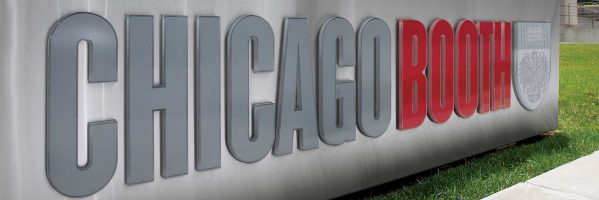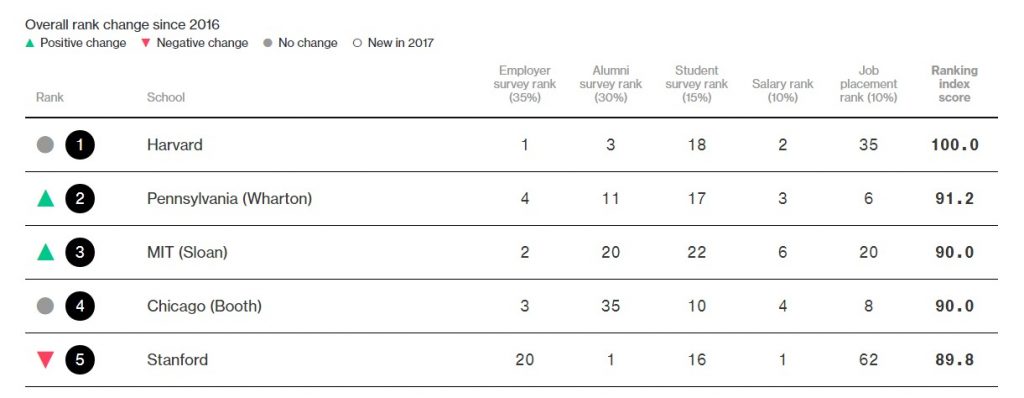The Not-So-Secret Way To Land a Job at EY-Parthenon

After the hard work and sweat of earning an MBA degree, you’ve probably thrown yourself into searching for the perfect job to match your new found expertise. Luckily, some of the world’s top companies are also looking for you.
Companies like EY-Parthenon are always looking to recruit top MBA talent seeking careers in strategy consulting. A division of Boston-based EY (formerly Ernst & Young), one of the world’s top professional services firms, EY-Parthenon is a strategy consultancy which aims to combine innovative thinking with clients’ smarts to create actionable strategies that can cause a real impact in today’s business world.
MBAs Love EY-Parthenon
For MBA graduates looking for a career in strategy consulting, there are few places that can provide the unique combination of diverse clients and rewarding entrepreneurial work that EY-Parthenon offers. Comments from Parthenon’s MBA-holding consultants on why they love their job range from the incredible relationships they get to build with clients to the competitive benefits package they receive (including a night at the EY suite at Yankee Stadium).
“There is certainly an attitude in the New York office that we work hard but ensure that we find that balance necessary to enjoy the great benefits of working with wonderful colleagues in the best city in the world,” commented a graduate of NYU’s Stern School of Business and current Senior Consultant at EY-Parthenon.
For Adam, a graduate of the University of Chicago Booth School of Business and current Vice President at the Shanghai office of EY-Parthenon, working at the company has given him the opportunity to use his industry specific expertise to benefit a diverse set of clients.
“[A]t any given time, I may be leading a two-week diligence for a private equity client while also working on an eight-week corporate strategy engagement,” he says. “Having such a variety of engagements while still being able to be focused on very strategic work within a single sector practice is what I think sets EY-Parthenon apart.”
Life at EY Parthenon
As a consultant at EY-Parthenon, MBAs will play a critical leadership role in the company. Serving as the primary contact for clients, MBA graduates will have the chance to get their hands dirty right away, developing and executing work plans for a diverse client set. Consultants will use their knowledge of teamwork, leadership, analytics and communications to excel in the role.
The consultant career track at EY-Parthenon consists of various phases, beginning with work stream leadership—a focus on gaining the crucial analytical skills needed to best help clients—and ending with client management, the final stage before moving into a role as a partner or managing director. EY-Parthenon accelerates individuals through their careers and have no official timetable for new consultants outside of their own ambition and ability to take on responsibilities.
According to anonymous profiles on Glassdoor, consultants at EY-Parthenon make an average of $173,814 annually.

Landing The Job
Anyone can apply for a consultant role at EY-Parthenon, but the company also actively recruits at a number of undergraduate and graduate business schools. The MBA programs the company recruits from are spread throughout the world, and include some of the United States’ top programs, such as Harvard Business School, Kellogg School of Management, and the Stanford Graduate School of Business. The company also heavily recruits at international schools like INSEAD and the London Business School.
MBA students in their second year may apply directly for a full-time consultant role with the company, and first year students are eligible to apply for the summer consultant position. Any student attending a school that EY-Parthenon directly recruits from should check for the specific instructions on how to apply to these roles, typically through their university’s career services. The interview process for these schools typically takes place over two rounds, with the first round taking place on campus and second round interviews at the one of the various global Parthenon offices.
For more information on the company and job opportunities for current MBA students and graduates, check out the official EY-Parthenon MBA job page.
Chicago Booth Professor Anil Kashyap Honored By Japanese Government

Last month, University of Chicago Booth School of Business professor Anil Kashyap received the Order of the Rising Sun, Gold Rays with Neck Ribbon award by the Japanese government. This prestigious award honors the renowned economist’s distinguished achievements and contributions to Japan.
Kashyap was honored for the significant role he played in promoting and disseminating high quality research on the Japanese financial system and economic policies. According to the school, he coordinated conferences bringing together Japanese and American researchers in partnership with the Economic and Social Research Institute, the think-tank under the Cabinet Office of Japan.
“It has been an honor and a privilege to work with the Cabinet office on these conferences. They have generated many good research papers, forged some collaborations and hopefully have helped with the policy process,” Kashyap said after receiving the award.
The Order of the Rising Sun was originally established in 1875 by Japanese Emperor Meiji as the first national decoration awarded by the Japanese government. However, a modern version has been awarded to non-Japanese recipients since 1981.
Today the award honors individuals who have made significant contributions to international relations, promotion of Japanese culture, advancements in their field, development in welfare, as well as preservation of the environment. Kashyap was among 149 foreign recipients of the award this year.

Anil Kashyap/Photo via Chicago Booth
Prior to joining the Chicago Booth faculty in 1991, Kashyap spent three years as an economist for the Board of Governors for the Federal Reserve System. In addition to his exploits in Japan, he is on the Board of Directors of the Bank of Italy’s Einuadi Institute of Economics and Finance, is a member of the Squam Lake Group, and serves on the International Monetary Fund’s Advisory Group on the development of a macro-prudential policy framework. Since 2016 he has been an external member of the Bank of England’s Financial Policy Committee.
Kashyap is currently the Edward Eagle Brown Professor of Economics and Finance at Chicago Booth. His research has won him numerous other awards, including a Sloan Research Fellowship, the Nikkei Prize for Excellent Books in Economic Sciences, and a Senior Houblon-Norman Fellowship from the Bank of England.
Kashyap also currently works as a consultant for the Federal Reserve Bank of Chicago, and serves as a member of the Economic Advisory Panel of the Federal Reserve Bank of New York, and as a Research Associate for the National Bureau of Economic Research.
Admissions Tip: The Waitlist

Last week was marked by Round 1 decision releases from a couple of the schools covered on MetroMBA and Clear Admit, and in the coming weeks, many of the remaining schools are scheduled to release R1 decisions. Clear Admit’s MBA LiveWire has captured a lot of this news, including quite a few candidates recently reporting that they’ve been waitlisted at places like London Business School and INSEAD.
For better or for worse, waitlisting is rather popular with top schools in the first round of admissions. As such, we’re devoting this week’s admissions tip to guidance for candidates who find themselves placed on a waitlist. Before we get to that, let’s look first at why schools use a waitlist.
Why Schools Use the Waitlist
First and foremost, while schools now know the quality of their Round 1 pool, they don’t yet know how strong the remainder of their applicants for this admissions season will prove, nor can they predict how many of the candidates admitted as part of Round 1 will ultimately enroll. Simply put, the waitlist helps schools manage these unknowns to arrive at the strongest possible class come fall. Some schools will “under admit” Round 1 candidates in case there is a flood of quality applicants in Round 2 or a higher yield of Round 1 candidates than predicted. The goal of the school is, after all, to admit the best overall class, regardless of when someone applies. They also do not want to over admit during an early round, which will limit their opportunities to admit strong candidates later, thus the push to “under admit,” and place significant quantities of candidates on the waitlist who may very well gain admission in later rounds. Chicago Booth explains this well on their web-site:
“The waitlist at Chicago Booth is used to gauge the pool of candidates in a subsequent round before offering a final decision to those candidates placed on the waitlist.”
Schools also can learn, by placing a candidate on the waitlist, how committed he or she is to attending the school. There is signal value in how a candidate responds to the waitlist decision. Some candidates placed on a waitlist receive offers at other schools they would prefer to attend, in which case they will opt out. Others remain convinced that the school that has waitlisted them is their best choice and will hold out to see if they can ultimately gain admission.
As well, if you are waitlisted, we’ve outlined some more advice we feel will help you on the way to earning an MBA.
Five Tips for Making the Best of the Waitlist
If you find yourself on the waitlist, don’t lose hope. Top programs admit a fair number of individuals from the waitlist in Round 2 and even later. That said, we know that cautious optimism does not make the wait for an answer any easier. To help those in this situation make sure that they’re doing all they can, we do have a few strategic waitlist tips:
Know—and follow—the rules.
Schools vary in their stances when it comes to interaction with those on the waitlist; some shun communication from applicants and even go so far as to discourage on-the-record campus visits, whereas others welcome correspondence and assign an admissions office liaison to serve the needs of waitlisted candidates.
We know that the natural impulse is to update the adcom that recent promotion or the final grade from that accounting class you took to bolster your academic profile. At first blush, a short letter or quick call to communicate this kind of update might seem harmless. But no matter how exciting the piece of news you want to share may be, ignoring the adcom’s instructions is ultimately going to reflect badly on you. Though policies discouraging communication from waitlisted candidates may seem frustrating or unfair, it’s important to respect and abide by the preferences of each school.
Communicate if you can.
For those programs that do permit or encourage contact from waitlisters—Booth, for example, has traditionally invited waitlisted candidates to submit an additional 300-word essay—it is important to provide an update. In addition to the obvious news items mentioned above, it’s beneficial to read over your essays and reflect on whether there is some piece of your background or interests that you haven’t gotten across yet. Taking the time to write about your relevant recent experiences, positive developments in your candidacy and ways that you’ve enhanced your understanding of the program is a nice sign of your interest in the school and a good strategy for telegraphing your commitment to attending. It is, of course, also in your interest to make sure that the adcom has the most up-to-date information so that it can make an informed decision the next time your file comes up for evaluation.
Keep in touch.
Don’t disappear after an initial note to the adcom or phone call to your waitlist manager (if applicable). If you have plans to be on or near campus, for instance, send a quick email to alert your waitlist manager (or whoever you may have interacted with on the adcom) to this fact. In many cases, you’ll find that the adcom will even invite you to stop by for a friendly chat about your candidacy—something that can go a long way towards helping your case. Beyond a visit, sending a brief update every few weeks or so is another way to reaffirm your interest in the school and keep you fresh in the minds of the adcom—something that could work to your advantage in a discussion of which candidates to admit from the waitlist. In all cases, it is important to remember that there is a fine line between persistence and pestering, so use good judgment!
Letters of support.
If, during the admissions process, you have interacted with students or alumni of the program, it may be worth reaching back out to these individuals and updating them on your status. Assuming you have made a positive impression during the admissions cycle, they may be willing to provide an additional letter of support for your candidacy at this stage of the process.
Have a contingency plan.
While it’s important to be consistent and enthusiastic when waitlisted and communicate with staff at your target program, it’s also wise to have a backup plan. With the Round 2 deadlines for several top programs a little over a month away, there’s still time to put together a solid application to another school. Even if you’re waitlisted at the school of your dreams and intend to reapply if not admitted, it’s also never too early to start thinking about the coming year and what steps you might take to enhance your candidacy before next fall.
Good luck to everyone waiting to receive decisions over the next few weeks!
This article has been edited and republished with permissions from Clear Admit.
Harvard Business School Tops Bloomberg Businessweek Ranking

For the third straight year, Harvard Business School reigned supreme in the annual Bloomberg Businessweek “Best Business Schools” ranking, topping the Wharton School at the University of Pennsylvania and MIT Sloan School of Management. In joining HBS on the medals podium this year, those schools both saw significant gains over last year, climbing from sixth and seventh respectively.
Rounding out the top five this year is the University of Chicago Booth School of Business —holding steady year over year at fourth—and Stanford Graduate School of Business, which fell from second place in 2016 to fifth this year.

The methodology Bloomberg Businessweek uses to arrive at its annual MBA ranking involves weighting each of five principle factors. Employer surveys account for 35 percent of a school’s score. Alumni surveys account for another 30 percent. And a combination of current student surveys, salary rankings, and job placement together account for the remaining 35 percent of the final score.
High Risers
Ten out of the top 20 ranked schools in the 2017 Bloomberg Businessweek ranking advanced at least one spot over last year. Wharton and Sloan each managed to leap four spots, boosted by high praise from employers and hefty salary benefits for recent graduates. The University of Washington Foster School of Business also managed to jump from 19th to 15th overall this year, thanks largely to its top ranking as the nation’s best business school for job placement.
The Cornell S.C. Johnson Graduate School of Management and the UCLA Anderson School of Management both saw a rankings jump of three spots, with Johnson moving up to 13th and Anderson coming in at 19th.
The year’s biggest winner, however, may be the Penn State Smeal College of Business, which jumped a whopping 12 spots from last year’s 37th to come in at 25th in 2017. It wins the award for the year’s biggest overall rankings increase. The USC Marshall School of Business also saw a momentous climb this year, sidling up eight spots from 38th last year to 30th this year.
In the latter half of the rankings came another one of this year’s biggest risers, with the Terry College of Business at the University of Georgia jumping 11 spots from last year, up from 65th overall to 54th. Elsewhere, the David Eccles School of Business at the University of Utah, the Whitman School of Management at Syracuse University, the C.T. Bauer College of Business at the University of Houston, and the Pepperdine University Graziadio School of Business and Management all saw a jump of at least seven spots in the new ranking.
Once Mighty, Now Fallen
Stanford GSB, Duke’s Fuqua School of Business, Dartmouth’s Tuck School of Business, and Jones School of Business at Rice University may all be feeling a wee bit dizzy. Last year Stanford shot up to second from seventh the year before, but this year it finds itself demoted to fifth. Duke’s Fuqua School, which last year celebrated a momentous jump from eighth to third, this year fell back down to seventh. Dartmouth’s Tuck School of Business, which had one of last year’s biggest gains, rocketing up nine spots to break into the top five from a mere 14th place finish the year before, this year finds itself at seventh. Similarly, Rice Business, as the Jones School likes to be called, which last year catapulted 11 spots to number eight, this year slipped to tenth. But at least all maintained their footing within the top 10.
Emory’s Goizueta Business School and the Texas A&M Mays Business School, for their part, slipped out of the top 20 altogether. Goizueta slipped just slightly, from 20th to 21st, and Mays slid from 18th to 22nd. The University of Virginia Darden School of Business also stumbled, slipping from 12th last year to 17th this year. But the Charlottesville school at least managed to remain in the top 20, thanks in part to strong scores in the student survey and salary categories.
No school, however, lost more ground than the George Washington University School of Business, which fell an eye-popping 14 spots from last year, losing its place among the top 50 business schools in the United States.
Bloomberg BW has made multiple changes to its methodology in recent years, resulting in significant volatility in terms of where schools fall on the list even when not much has changed year over year at the individual schools themselves. This has led many to question the credibility of the ranking overall. That said, Clear Admit’s Alex Brown found this year’s results easier to swallow than some in recent years. “This ranking seems more reasonable to me this year,” he says. “Each of the M7 programs are in the top 10, and the schools I would consider in the top 16 are all in the top 20.”
You can view the complete 2017 Bloomberg Businessweek rankings here.
This article has been edited and republished with permissions from Clear Admit.
Five Chicago Booth MBAs Named Siebel Scholars, One Named McGowan Fellow

The University of Chicago recently announced it’s Siebel Scholars and McGowan Fellow for 2018, with five MBA students from the Booth School of Business being recognized for their academic achievement and leadership, and awarded scholarship money for their efforts.
Darrick Chan, Kathleen Davis, Monica Kalwani, Igo Shkilko, and Yihan Tan make up this year’s group of Booth Siebel Scholars. Each second-year MBA student received $35,000 each toward their final year of MBA tuition.
Siebel Scholars are nominated their schools deans for their academic excellence, and leadership in the fields of business, computer science, bioengineering, and energy science. Established in 2000, the Siebel Foundation presents grants to more than 90 graduate students from 16 universities in the United States, China, France, Italy, and Japan. On average, Siebel Scholars rank in the top 5 percent of their class, and many rank within the top 1 percent.
Meanwhile, Pedro Amoroso Lima was named Chicago Booth’s McGowan Fellow for 2018 thanks to his commitment to ethical leadership. Lima is one of 10 McGowan Fellows nationwide this year. These students will work together on a social impact project that will tackle a particular challenge.
Established in 2010 by the William G. McGowan Charitable Fund, a Chicago-based family foundation, the McGowan Fellows program awards full-year tuition to select students. The program aims to provide the resources and guidance to young professionals to become ethical, accountable leaders and role models for generations to come.
These are not the only scholarship and fellowship opportunities for Chicago Booth full-time MBAs. Full and partial tuition is awarded through merit-based awards, Chicago Booth Fellowships, and Corporate Fellowships. Merit-based awards do not require a formal application beyond the normal process of applying to Booth.
Like the merit-based awards, the 15 different Chicago Booth Fellowships have no formal application process, although interested Booth applicants are encouraged to contact the Office of Admissions (7773.702.7396) for more information. Fellowships are awarded under the categories of: Academic, Diversity, Industry, Leadership, Military, Regional, and the Yellow Ribbon Program.
Admissions Tip: Round 1 Rejection Reflections

Last week a number of programs, including Wharton, Michigan Ross, and MIT Sloan, sent out interview invites to their Round 1 candidates. These invitations came on the heels of similar updates from the likes of Harvard Business School and Chicago Booth. As a result, many candidates are now diligently preparing for interviews, having made it to the next phase of a competitive admissions process.
Rejected Without Interview
Of course, we recognize that not all applicants are so fortunate. And since we’ve published a great deal of content on interview prep of late, we’re turning the tables and dedicating this week’s admissions tip to those of you who haven’t moved forward.
The interview invite stage for Round 1 is the first signal as to your potential for attending a leading business school, and for a few, it can be a rude awakening.
If you have not yet received any good news, despite submitting applications in Round 1, you’ll want to read this post very carefully.
Reconfiguring Following Rejection
If there is any good news when it comes to being rejected in the first round, it’s that it’s still early in the application season, and not too late to readjust your strategy and target appropriate programs for Round 2. Round 2 application deadlines generally fall in the first couple of weeks of January, which leaves a little more than two months to prepare a new set of applications. It is also often the case, that your first applications are not the strongest. You learn through this process, and could potentially submit stronger applications for Round 2. Or it might be the case that you need to re-evaluate your goals, and then target a new set of programs that are appropriate for those goals. You could also adjust the competitiveness of the programs you target. So if you struck at all of your R1 targets, you may need to shift your target to slightly lower ranked programs.
Rejection Reflection
You also might want to take a hard look at what the schools which chose not to interview you, might have found lacking. If it’s your GMAT score, you have two months to try to remedy it. If you failed to make a compelling case for the degree or to properly showcase your experience in your essays, it might be a good time to get a fresh perspective from a third party on your materials. If your recommendations may have been lacking, speak with your writers or seek out new colleagues who might be able to better support your candidacy.
Of course, if there isn’t something as tangible as a poor test score, shoddy essays, or subpar letters of recommendation, you may need to take a longer view. For instance, if you lack professional experience, leadership accomplishments, or outside activities, it might make sense to delay your MBA ambitions, and reapply in a following year. Reapplicants are generally looked upon favourably in the admissions process.
MBA Motivations
Finally, you might want to reassess whether the MBA is the right next step for you. Perhaps the admissions committees are doing you a favor, and nudging you in a different direction.
Chin Up!
There’s no doubt that receiving negative results can be painful, but it’s how you handle the situation that will determine your future. Don’t lose site of the fact that news of rejection(s) is actually useful feedback in a process that can be quite opaque. Take the feedback to heart, regroup, reassess, and devise a plan to help you reach your goals.
